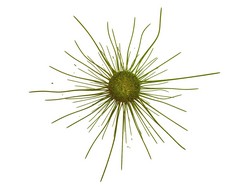The microenvironment in cancer metastasis
During cancer progression, tumour cells acquire the ability to migrate and grow at distant sites after entering the blood or lymphatic vessels. For years, scientists had focused on the conditions that ensure greater metastatic potential in tumours. Scientists on the EU-funded project MICROENVIMET (Understanding and fighting metastasis by modulating the tumour microenvironment through interference with the protease network) proposed to explore the role of the tumour microenvironment in initiating and promoting cancer metastasis. This idea is supported by accumulating evidence that indicates the capacity of primary tumours to induce early changes of the local microenvironment in distant organs, creating a permissive niche for circulating cancer cells. The deposition of matrix components precedes the influx of metastatic cells, suggesting a key role for the microenvironment in metastases formation. MICROENVIMET activities focused on both the cellular and the molecular factors implicated in the regulation of metastatic dissemination to other organs. The cellular compartment comprises not only tumour cells but also blood or lymphatic endothelial cells, pericytes, smooth muscle cells, fibroblasts, immune and inflammatory cells as well as a small subpopulation of cancer stem cells. Researchers utilised the murine MMTV-PymT model of metastatic breast cancer and performed molecular profiling. They identified a set of non-coding RNAs modulated during the progression of breast cancer. Also, they discovered that specific matrix metalloproteinases and cathepsins were implicated in the recruitment of host cells in primary tumours as well as cancer growth and metastasis. Additional molecules involved in the metastatic niche were identified and monoclonal antibodies that neutralised these target proteins were evaluated for their therapeutic potential. A nanoparticle-based system was also developed for the delivery of protease inhibitors in vivo. Overall, the MICROENVIMET study advanced our knowledge on the tumour host interplay in the context of the tumour microenvironment. The identification of proteins expressed by the stroma compartment and their role in cancer metastasis will likely shape the future of anti-cancer therapies.







